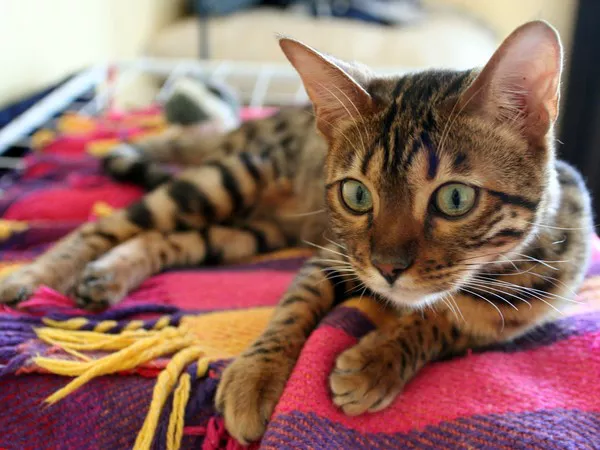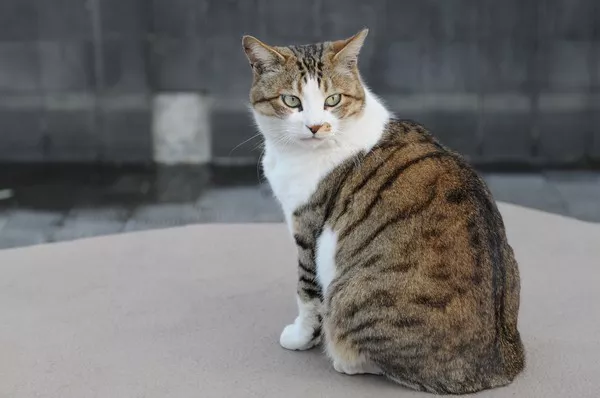Kittens are known for their playful antics and boundless energy, but they can also face a variety of health challenges, including sensitive stomachs. This condition can manifest as vomiting, diarrhea, or general gastrointestinal discomfort, leading to concerns for both the kittens and their caregivers. Understanding the best food options for kittens with sensitive stomachs is crucial for ensuring their health and well-being. This comprehensive guide will explore the causes of sensitive stomachs in kittens, the nutritional requirements for their growth, types of foods that can help, recommended brands, feeding tips, and how to manage their overall health.
Understanding Sensitive Stomachs in Kittens
What Causes Sensitive Stomachs?
Sensitive stomachs in kittens can arise from various factors, including:
Dietary Changes: Kittens are often sensitive to sudden changes in their diet. Introducing new foods too quickly can upset their digestive systems.
Food Intolerances: Some kittens may have intolerances to certain ingredients, such as grains, dairy, or specific proteins.
Allergies: Food allergies can also lead to gastrointestinal upset. Common allergens include chicken, beef, fish, and dairy products.
Parasites: Intestinal parasites, such as worms, can cause digestive issues and discomfort. Regular veterinary check-ups are essential for monitoring and treating these conditions.
Infections: Bacterial or viral infections can lead to gastrointestinal disturbances, resulting in sensitive stomach symptoms.
Stress: Environmental changes, such as moving to a new home or the presence of other pets, can cause stress, which may affect a kitten’s digestive health.
Symptoms of Sensitive Stomachs
Kittens with sensitive stomachs may exhibit a range of symptoms, including:
- Vomiting
- Diarrhea
- Flatulence
- Abdominal discomfort
- Loss of appetite
- Weight loss
- Lethargy
If you notice any of these symptoms persisting for more than a day or two, it is crucial to consult a veterinarian for a proper diagnosis and treatment plan.
Nutritional Requirements for Kittens
Kittens have specific nutritional needs to support their rapid growth and development. Understanding these requirements is essential when selecting food for those with sensitive stomachs.
High-Quality Protein
Protein is vital for growth, muscle development, and overall health. Kittens require a diet rich in high-quality animal protein, ideally comprising at least 30-40% of their total caloric intake. Sources such as chicken, turkey, and fish are excellent options.
Moderate Fat Content
Fats provide a concentrated source of energy and are essential for healthy skin and coat development. Kittens should consume food with around 15-25% fat content, focusing on healthy fats like omega-3 and omega-6 fatty acids.
Digestible Carbohydrates
While cats are obligate carnivores, some carbohydrates can be beneficial for energy. Look for easily digestible sources such as rice or sweet potatoes. Avoid foods with excessive fillers or artificial ingredients.
Essential Vitamins and Minerals
Kittens require a range of vitamins and minerals for optimal health. Key nutrients include:
Calcium and Phosphorus: Important for bone development.
Taurine: An essential amino acid for heart and eye health.
Vitamins A, D, and E: Crucial for immune function and overall health.
Hydration
Kittens need to stay hydrated, especially if they are experiencing diarrhea or vomiting. Ensure access to fresh water at all times, and consider wet food options, which provide additional moisture.
Types of Food Suitable for Kittens with Sensitive Stomachs
When selecting food for kittens with sensitive stomachs, it’s important to choose formulas specifically designed to minimize gastrointestinal upset. Here are the main types of food that can help:
Limited Ingredient Diets (LID)
Limited ingredient diets contain fewer components, reducing the likelihood of food intolerances or allergies. These diets typically focus on a single protein source and a limited number of carbohydrates.
Benefits:
- Easier to identify potential allergens.
- Simpler formulas are gentler on the digestive system.
Grain-Free Options
Many kittens are sensitive to grains, which can lead to digestive issues. Grain-free diets eliminate common grains such as wheat, corn, and soy, focusing on alternative carbohydrate sources.
Benefits:
- Reduces the risk of grain-related sensitivities.
- Often higher in protein and healthier fats.
Easily Digestible Formulas
Some cat foods are specifically formulated to be easily digestible, featuring prebiotics and probiotics that support gut health. These foods often include ingredients like chicken, turkey, or fish, which are gentle on the stomach.
Benefits:
- Supports healthy digestion.
- Helps maintain gut flora balance.
Prescription Diets
For kittens with severe gastrointestinal issues, veterinarians may recommend prescription diets designed to address specific health concerns. These diets are formulated with highly digestible ingredients and can help manage symptoms.
Benefits:
- Tailored to address specific digestive problems.
- Often includes veterinary oversight for optimal management.
Recommended Brands for Kittens with Sensitive Stomachs
When selecting food for kittens with sensitive stomachs, it’s essential to choose reputable brands known for their quality ingredients and commitment to feline health. Here are some recommended brands:
Royal Canin Veterinary Diet Gastrointestinal Kitten
Type: Prescription diet
Features: Formulated for kittens with sensitive stomachs, this diet includes highly digestible proteins and prebiotics to support digestive health.
Royal Canin Veterinary Diet Gastrointestinal Kitten is specifically designed for kittens experiencing gastrointestinal issues. It provides balanced nutrition while promoting healthy digestion.
Hill’s Science Diet Kitten Sensitive Stomach & Skin
Type: Sensitive stomach formula
Features: This food contains prebiotic fiber to support digestive health and is made with high-quality proteins.
Hill’s Science Diet Kitten Sensitive Stomach & Skin is formulated to meet the needs of kittens with sensitive stomachs. Its gentle ingredients promote healthy digestion and skin health.
Blue Buffalo Basics Kitten
Type: Limited ingredient diet
Features: This grain-free formula features a single animal protein source and is designed for kittens with food sensitivities.
Blue Buffalo Basics Kitten is an excellent option for kittens with sensitive stomachs. Its limited ingredient formula helps reduce the risk of digestive upset while providing essential nutrients.
Wellness CORE Grain-Free Kitten
Type: Grain-free formula
Features: High in protein and made with natural ingredients, this food is designed to support the health of kittens with sensitive stomachs.
Wellness CORE Grain-Free Kitten food is rich in protein and free from grains, making it a suitable choice for kittens with dietary sensitivities.
Purina Pro Plan Focus Kitten Sensitive Skin & Stomach
Type: Sensitive stomach formula
Features: This food includes prebiotic fiber and easily digestible ingredients to support digestive health.
Purina Pro Plan Focus Kitten Sensitive Skin & Stomach is formulated to meet the needs of kittens with sensitive stomachs, offering balanced nutrition and gentle ingredients.
Feeding Tips for Kittens with Sensitive Stomachs
Feeding a kitten with a sensitive stomach requires careful attention to their diet and feeding practices. Here are some helpful tips:
Transition Slowly to New Foods
When introducing new food, do so gradually over 7-10 days. Start by mixing a small amount of the new food with the current food, gradually increasing the new food’s proportion. This slow transition helps minimize digestive upset.
Monitor Portion Sizes
Kittens have small stomachs and may benefit from smaller, more frequent meals throughout the day. Aim for four to six meals daily, adjusting portion sizes based on the kitten’s age, weight, and activity level.
Choose High-Quality Ingredients
Select food made from high-quality, recognizable ingredients. Avoid foods with fillers, artificial additives, or by-products, as these can lead to digestive issues.
Keep Feeding Areas Clean
Ensure that feeding bowls are clean and free from old food residue. Regularly wash bowls to prevent bacterial growth and maintain a healthy feeding environment.
Observe for Food Reactions
Keep a close eye on your kitten’s reactions to food. If symptoms such as vomiting or diarrhea persist, consult your veterinarian to discuss dietary adjustments or potential food intolerances.
Provide Fresh Water
Always ensure that your kitten has access to fresh, clean water. Hydration is crucial, especially if the kitten experiences diarrhea or vomiting.
Health Considerations for Kittens with Sensitive Stomachs
Kittens with sensitive stomachs may face various health challenges that require attention. Here are some common issues to monitor:
Dehydration
Diarrhea and vomiting can lead to dehydration, which is particularly dangerous for young kittens. Monitor your kitten’s hydration levels and consult your veterinarian if you notice signs of dehydration, such as dry gums, lethargy, or decreased appetite.
Weight Loss
Kittens should be gaining weight steadily. If you notice any weight loss or failure to thrive, consult your veterinarian for an evaluation and dietary recommendations.
Gastrointestinal Parasites
Regular veterinary check-ups are essential for monitoring and treating any potential intestinal parasites, which can cause sensitive stomach symptoms. Ensure your kitten is up to date on deworming protocols.
Stress Management
Environmental changes can lead to stress, which may exacerbate digestive issues. Provide a safe, quiet space for your kitten and minimize disruptions during feeding and playtime.
Regular Veterinary Check-Ups
Routine veterinary visits are essential for monitoring your kitten’s health and development. Your veterinarian can provide guidance on nutrition, vaccinations, and preventive care.
Conclusion
Caring for a kitten with a sensitive stomach requires attention to their unique nutritional needs and careful selection of food. By understanding the causes of sensitive stomachs, recognizing the symptoms, and providing high-quality food options, you can help ensure your kitten’s health and happiness.
From limited ingredient diets to grain-free formulas, there are various options available to support the dietary needs of kittens with sensitive stomachs. Regular veterinary check-ups, monitoring hydration, and maintaining a clean feeding environment are essential components of their care.
By prioritizing nutrition and health, you can help your sensitive-stomached kitten thrive and enjoy a happy, healthy life. With the right food and care, your kitten can grow into a strong, playful cat, ready to take on the world.
Related topic:





















